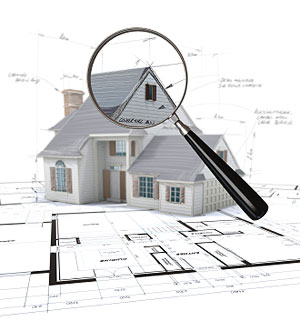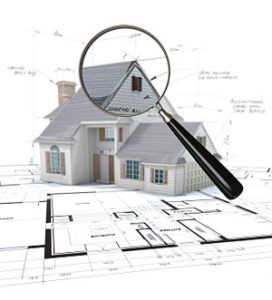INSPECTIONS FOR VINTAGE AND HISTORIC HOMES


 The Different Types of Home Inspections Explained
The Different Types of Home Inspections Explained
Home inspections are a common source of confusion for first-time home buyers because there are several different types of inspections that can take place. Here is an overview of the most common types of inspections you could encounter during the buying process.
Primary Home Inspection
When you hear people talk about a “home inspection,” they are generally referring to the primary inspection that is conducted by a licensed home inspector. It’s always a good idea to have a property professionally inspected before buying it.
The inspector will examine the home’s foundation, roof, electrical system, plumbing, installed appliances, heating and cooling systems, and overall condition. When he’s finished, he will give you a detailed inspection report that explains his findings.
Keep in mind that when you buy a house, you are generally buying it in “as-is” condition (unless specific provisions are added to the contract saying otherwise). For this reason, you want to make sure you know what is, and is not, working in the home. You’ll also want to know what repairs might be needed, and how much they might cost. For all of these reasons, the primary home inspection is essential.
The primary inspection might suggest that further inspections be done by companies that specialize – such as roofers or plumbers.
Termite Inspections
Only VA loans require a termite inspection. I had a termite inspector to a 20th floor highrise once. Ridiculous, but it happened. Home inspectors typically look for signs of termites or other wood-destroying insects. If they do find the telltale signs – it’s a good idea to have a more extensive separate inspection. This inspection is done on behalf of the buyer and the mortgage company. You might even have to provide a copy of the inspection for your mortgage lender. This is especially true if you live in an area where termites are common. You might be able to skip this process if termites are not commonly found in your area. Termite damage can be extensive and expensive. So these inspections are usually worth the cost.
Sewer Line Inspections
On new homes this is not a concern. Homes in the Vintage/Historical areas it is a good idea to have a full Sewer Line Inspection. The homes that were built in the 60’s and before normally have clay pipe sewer lines. Over time they will crumble or collapse. This can be a very costly repair if it has to be replaced.
The sewer inspection actually involves sending a camera thru the lines to check for tree roots, “bellies” and breaks.
It is also suggested you purchase a sewer line warranty/service contract. The City of Las Vegas has approved Service Line Warranties of America to service homes within the city. Cost is $6.00 monthly/$67.00 annually.
Home Appraisal / Appraiser’s Inspection
If you are using a mortgage loan to buy a house, your bank or lender will send a licensed home appraiser out to evaluate the property. The appraiser is primarily concerned with the market value of the home. He will also examine health and safety items such as earthquake straps on the water heater, broken glass, and serious trip hazards.
Final Walk-Through Inspection
Home buyers typically perform one last inspection near the end of the real estate transaction, just to make sure the house is in the same condition it was in when they agreed to buy it. During this final “walk-through,” as it is known, you’ll want to ensure that the house has not been damaged in any way since you first signed the contract, and that any repairs done at your request have been completed properly.
As each inspection takes place, keep in mind that no home is perfect. You’ll need to weigh the pros and cons of every house in order to make the right purchasing decision.
You can expect a number of inspections to take place during your home buying process. Most of these inspections are for your benefit, as the home buyer, so you need to take each inspection seriously and consider the outcome carefully.
You and your Realtor® are the last line of defense to avoiding problems with your new home. Always choose an agent that knows the neighborhood that you are looking to buy a home in. Any agent can sell a new home but when dealing with Vintage/Historic homes pick an agent that specializes in those areas. They have the knowledge and know what to expect in homes that were built decades ago. Don’t be afraid to ask questions about the inspections. A good professional Realtor® will be happy to guide you through the process and answer your questions. They want you happy with your purchase.
 Jack LeVine has been trusted by well over a thousand clients in the last 27 years. He gets the job done – and gets it done right. No other agent in Las Vegas has the depth of knowledge and experience that Jack has of the vintage neighborhoods, the mindset of buyers for 50 or 60-year-old homes, and the special things that dramatically affect the value of a vintage home.
Jack LeVine has been trusted by well over a thousand clients in the last 27 years. He gets the job done – and gets it done right. No other agent in Las Vegas has the depth of knowledge and experience that Jack has of the vintage neighborhoods, the mindset of buyers for 50 or 60-year-old homes, and the special things that dramatically affect the value of a vintage home.
If you want to sell (or buy) a Vintage Las Vegas era home – Call or email Jack LeVine of Very Vintage Vegas Realty – 702-378-7055 [email protected]



